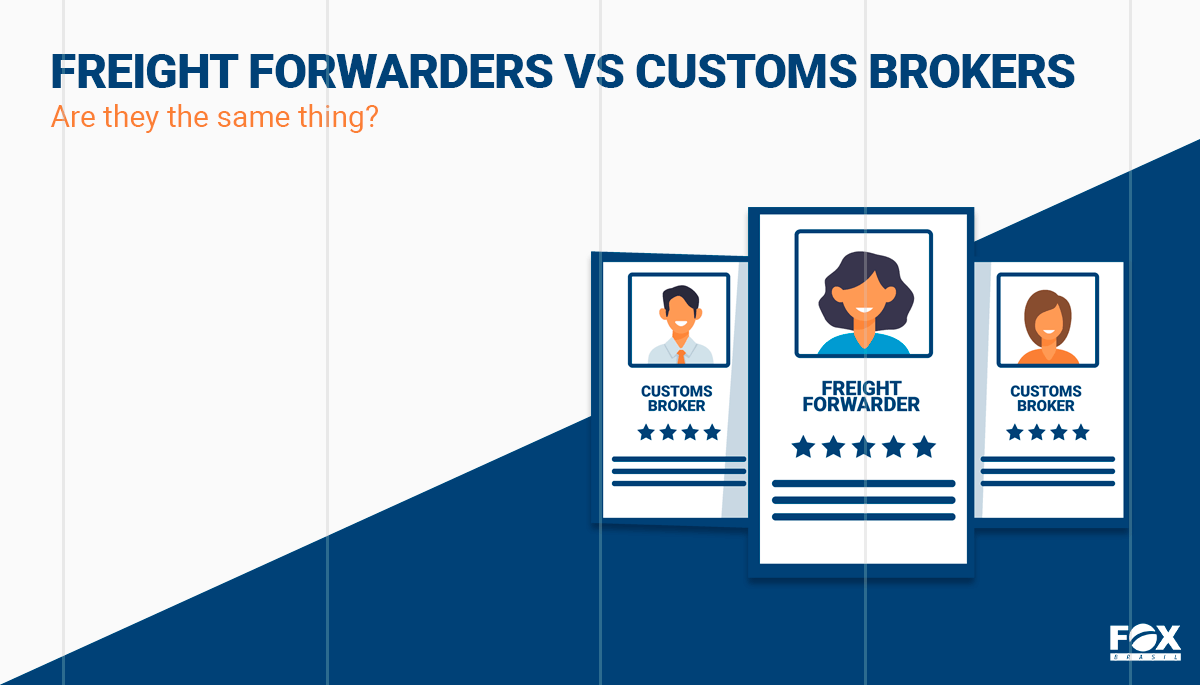Customs Brokers versus Freight Forwarders

FOX Brasil Freight Forwarder
When we are talking about international shipments, customs brokers and freight forwarders play very important roles that are similar in many ways which may lead to one thinking that they’re just two names for the same thing, but they are, in fact, very different, especially when we are look at their areas of expertise and their overall responsibilities in the execution of a transport operation.
In this post, we go over what exactly differs one from the other and which of these professionals can be more helpful to you and your international demand.
Customs Brokers
Customs Brokers are professionals who deal with customs bureaucracy on behalf of the cargo owner in order to get clearance for the goods. They have deep understanding of customs procedures and the necessary documents for the shipment to be in accordance with the country’s laws, and this way guarantee a smoother operation with almost no openings for mistakes that could lead to delays and extra costs.
In addition to that, customs brokers are licensed workers, having authorization of the government to operate as such. They have direct contact with many government agencies, which facilitates even more the clearance process when this professional is involved.
Freight Forwarders
Freight Forwarders are professionals who deal with the logistics side of the operations, playing a management role in the transportation of a shipment on behalf of the owner. They are experienced professionals and highly qualified for contracting carriers, arranging bookings, managing storage, and everything else that is involved in a shipping operation at the best possible price.
As much as they are, in general, focused on the physical transportation of goods, freight forwarders also administrate documents, and some freight forwarding agencies offer customs clearance as a part of an integrated logistics service.
It should be noted that a lot of freight forwarders are also customs brokers, but not all customs brokers are freight forwarders as well.
How to put them apart?
To put it simply, freight forwarders are managers, focused on a successful and cost-effective transport operation. Meanwhile, customs brokers are bureaucratic professionals who work towards getting clearance for a shipment.
Who do I need in my operation?
Both professionals will benefit the transportation of your shipment.
It is not recommended that you, as a shipper, try to fully manage the functioning of your operation on your own. Any mistakes will cause delays and may be very expensive and, not only that, but surely your attention could probably be put to better use elsewhere. It is really hard for someone inexperienced and with few contacts to arrange bookings with trustworthy carriers, as well as put together all of the necessary documents properly filled to present to the customs department.
The smartest choice is to go with a freight forwarding agency that also offers customs clearance as a part of their services. This way, you can contact a single professional who is capable of handling all of the aspects of the transport of your cargo with the necessary expertise and range of contacts.